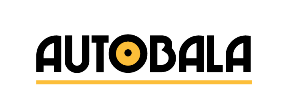Credit unions have tapped into the auto asset-backed securities market to raise capital amid liquidity concerns, while used-vehicle values inched up sequentially in September.
Ent Federal Credit Union issued its inaugural auto ABS deal on Sept. 26, a $243 million prime transaction, joining General Electric Credit Union and Oregon Community Credit Union in coming to market during the past two months.
September also brought a sequential uptick in used-vehicle values, with the Manheim Used Vehicle Value Index increasing 1% quarter over quarter to 214.3, down 3.9% year over year.
Meanwhile, automotive credit applications received in Arizona and Nevada indicated a higher exposure to fraud risk for lenders in those states since June. Lenders, including America First Credit Union, Chase Auto and Toyota Financial Services, originated a large volume of auto loans in Arizona in July, according to AutoCount data.
In this episode of the “Weekly Wrap,” Deputy Editor Amanda Harris and Senior Associate Editor Riley Wolfbauer discuss the top stories for the week ended Oct. 6, and what to expect in the week ahead.
Subscribe to “The Roadmap Podcast” on iTunes or Spotify, or download the episode.
Auto Finance Summit, the premier industry event for auto lending and leasing, returns Oct. 29-31 at the Bellagio Las Vegas and features fireside chats with Vroom and Ford Credit. To learn more about the 2023 event and register, visit here.
Transcript:
Editor’s note: This transcript has been generated by software and is being presented as is. Some transcription errors may remain.
Amanda Harris 00:09
Hello everyone and welcome to the roadmap from auto finance news since 1996, the nation’s leading newsletter and automotive lending and leasing. It is Monday October 9, and I’m Amanda Harris joined by Riley Wolfbauer. This is our weekly wrap on what happened in auto finance for the week ending October 6 2023. This episode is sponsored by AI software provider Informed IQ. In economic news you as an us employment unexpectedly serves in September potentially setting the groundwork for another Federal Reserve interest rate hike. Non Farm payrolls increased by 336,000 Last month, while the unemployment rate held at 3.8%, and wages rose modestly. The labor market strength may hinder the Feds effort to curb inflation and prompt additional hikes later this year. In automotive news, debt concerns are rising as Americans are falling underwater on their car loans. Used car values have fallen about 16% since since peaks earlier last year, coming out of the pandemic. New car buyers carrying negative equity and their trade ins were underwater by an average of $5,820 in September, according to data from Edmonds. By comparison, the average and late 2021 was around 4100. This can cause difficulty for lenders as it can be challenging to roll negative equity into a new loan. And auto finance BMO Harris is no longer a preferred lender on Tesla’s retail installment contract program. After the Toronto bass bank exited indirect auto lending last month. The bank does continue to provide direct auto loans and commercial financing for dealers. Tesla’s list of remaining preferred lenders as of September 13, includes Chase auto TD auto finance, Capital One Auto Finance Santander Consumer USA and FYI connect just to name a few. We will also cover credit unions came to market in recent weeks in liquidity challenges. Ent Federal Credit Union issued its inaugural auto ABS deal on September 26th, a $243 million prime transaction General Electric Credit Union August also issued the financers first ever auto ABS deal, a $300 million transaction backed by prime auto loans, while Oregon Community Credit Union came to market on September 22, with a $250 million dollar deal also backed by subprime auto loans. So timber also brought a sequential uptick in these vehicle values with the Manheim us vehicle value index increasing 1%, quarter over quarter to 214.3, which is down 3.9% year over year. prices increased across nearly every market segment on a sequential basis, but declined for every segment except for pickups on a year over year basis. These vehicle prices are expected to remain elevated into the fall winter months in a tight supply. US inventory ended September at 47 days, which is down two days sequentially and seven days year over year. In fact, dealers are sourcing us cars from multiple channels, including service lane and private party and are being selective in what they buy from auction. We also have a fraud update to share in the market. Riley has the details.Riley Wolfbauer 03:16
Yeah, so we were hearing that there is an increase in fraud in Arizona, and Nevada. So we reached out to fraud prevention software point predictive to see what data they had on it. And they have seen a large increase in the rate of credit applications that have the highest fraud score that they can give. So poor predictive rates, credit applications on a scale of one to 999. For how how likely it is for to be a fraudulent application. And so the rate of credit applications receiving a score of 999 increased 23% in Arizona and 28% in Nevada since June. So the areas that they’re seeing the most amount of or the type of fraud that they’re seeing an increase in those two states is mainly synthetic identity and income fraud. Predictive said that is not very surprising to see the increase in synthetic because overall industry wide, we’ve been seeing an increase in synthetic identity fraud and synthetic identity fraud, especially as it’s becoming more mainstream of it being posted on social media and people are kind of discovering that this is an option for them to improve their credit or open up a line of credit. In July, Toyota Financial source Toyota Financial Services carried the greatest exposure in Arizona. While Chase auto and America first Credit Union were second and third and greatest exposure for most originations in July. Then in Nevada. Toyota Financial Services again had the greatest exposure and then America first credit union and chase auto followed as well in that state. The 23 and 25% jumps out are generally abnormal. Frank McKenna with Point Predictive said that typically they see like a five to 10% ebb and flow and the percentages. So jumps of 20% are, are abnormal to what’s generally seen. One thing that Frank did mention is that this elevated risk may not last forever in these two regions, because fraud rings generally move, they’ll target one area, or certain dealerships may be in a certain area. And then after being there for a few months, then they’ll move to somewhere else in the country. So this could be something that we could see pop up and other states and increase in other places. And we’ll have to keep a closer eye on that and do some additional reporting on it.Amanda Harris 05:41
Absolutely. Yeah, we always have our eyes and ears open for fraud. We follow it very closely. We know it’s a huge thing in our industry, and it will be a big topic at our events coming up later this month as well. So we’ll definitely be following that and maybe see where are those fraud rings moved to and who, who has the most exposure in the next states that are targeted, so we’ll keep a close eye on that. That about does it for today’s episode. As a reminder, you can purchase your all access pass to the auto finance Summit and the power source finance summit to attend both events and learn more about fraud. October 29 through 31st at the Bellagio in Las Vegas for 20% off. You can also get your all access pass at WWW dot auto finance set live. Thanks for joining us on the roadmap and be sure to follow us on X formerly known as Twitter and LinkedIn. We will see you online auto finance news.net and here next time
https://www.autofinancenews.net/allposts/risk-management/podcast-weekly-wrap-on-used-vehicles-fraud-capital-markets/ ‘Weekly Wrap’ on used vehicles, fraud, capital markets








